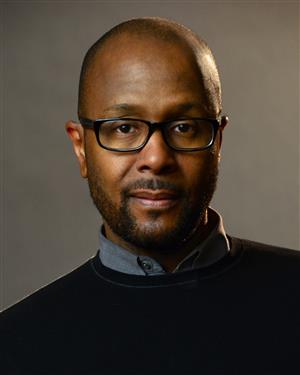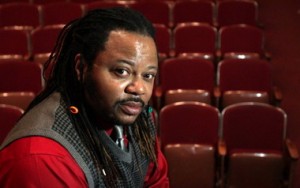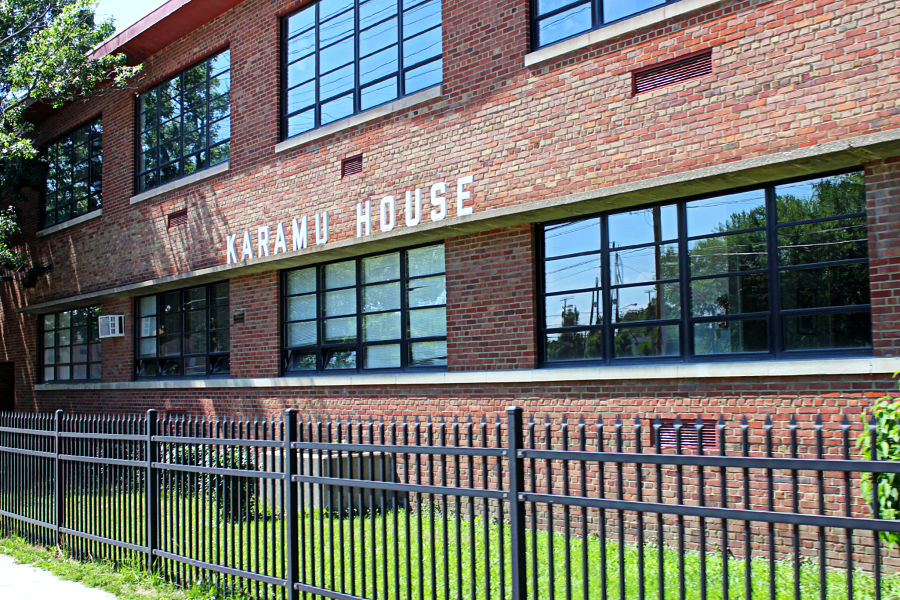CLEVELAND: On the heels of the company’s 100th anniversary, the leadership of Karamu House, the nation’s oldest multicultural and African-American theatre, enacted a bold move they believe will result in the theatre’s growth and sustainability for the next century.
In late February, Karamu’s president and CEO, Tony Sias, eliminated 15 jobs by transitioning the company’s early childhood/day care program to another provider, temporarily suspending its after-school arts education program, and cutting one part-time and two full-time positions—including Terrence Spivey, the company’s artistic director, a role he held since October 2003. All employees affected by the changes will receive severance pay.
“We wanted to thoroughly evaluate our mission, vision, core values, and those standard components of our organization,” Sias said. “Additionally, one of the key tasks was to develop a sustainable financial model.”

The major shakeup was the culmination of a long-term strategic planning process which the board of directors initiated in October 2014. However, the effort was suspended in April 2015 while the board searched for a replacement for Patricia Egan, the interim executive director. In September 2015, the board appointed Sias, a member of the strategic planning committee and longtime Karamu, as president and CEO. One of his first tasks was to restart the planning process and guide it to completion.
In his review of the theatre’s finances, Sias looked at each of Karamu’s four product lines: early childhood education, arts education, theatre, and community programs. He said he uncovered some “numbers that were breathtaking,” and concluded that the status quo was not sustainable for early childhood, arts education, and theatre expenses, and significant changes needed to be made.
“We realized that we had to take a holistic approach in terms of finances across the entire institution,” Sias explained. “So we decided that every facet of Karamu needed to be [affected] to create a leaner team. But that this was an opportunity for us to press pause and just take a moment to redesign and reengineer all of our programs.”
Ending the early childhood programs was a slightly easier decision because families could enroll their children in other, higher-rated programs in the community that specialized in day care. Karamu is also working with the Council for Economic Opportunities in Greater Cleveland to extend potential employment opportunities to the daycare teachers who were laid off.
The original theatre building, where the early childhood activities were held, is now empty, and Karamu is currently conducting a feasibility study of the entire campus to see how it can repurpose the building. Sias will roll out the theatre’s new strategic plan in April.
Arts education is vital for Sias, who left his post as director of arts education for the Cleveland Metropolitan School District to assume his job at Karamu. He’s looking forward to reshaping the after-school and out-of-school programs and expects to launch redesigned pilot programs in the fall.
“I want to have a solid, rigorous arts education program that is rooted in technique, where our classes are a pathway to the stage, so that we become known as a premier training ground in the arts,” he says.
At this time, there is no intention to find a new artistic director, according to Sias. The plan is to move forward with a lean team and then determine what will be most effective for the theatre moving forward.
Karamu will also take advantage of this “pause” to conduct extensive surveys of patrons to learn what type of theatre they would like to see, alternative forms of entertainment they would enjoy, community programs that may be of interest, and more.
“Theatre is our brand,” Sias said. “My vision is to keep Karamu as a living museum, a professional theatre with a robust season, having diverse entertainment and strong arts education programs.”
Sias is also overseeing the renovation of Karamu’s main playing space, the 215-seat Jelliffe Theatre, named in honor of founders Russell and Rowena Woodham Jelliffe. The theatre will be performance-ready in time for the 2017–18 season.

Although Spivey said he was not expecting the change, he has taken it in stride and is currently in rehearsals for his adaptation of God’s Trombones: Book of Negro Sermons by James Weldon Johnson, which opens at Karamu on May 20 and runs through June 19. He is also directing Bootycandy by Robert O’Hara at convergence-continuum theatre in Cleveland, which runs from March 25–April 16.
“I’m going to enjoy the freedom to create where I can,” Spivey said. He plans to take advantage of all of the connections he’s made with artists and organizations in Cleveland over the past dozen years. “There’s still some unfinished business in terms of black theatre that we need to see, with unconventional styles and a lot of new voices,” he added. “Those are some of the projects that I have in the works now.”
In addition to collaborative projects and directing gigs, Spivey also plans to do some coaching, consulting, and lecturing on black theatre. He said he’s had artistic director offers from theatres in other cities, but right now he would prefer to stay in Cleveland, where he’s become a well-known figure in the arts community.
As for Karamu, he believes Sias’s expertise in arts education will help create a vibrant new brand for the institution. “The educational component has been very weak in the past, and getting that training ground back that the Jelliffes had is going to be one of the strengths to keep Karamu going,” Spivey said. “So I am hoping and praying for Karamu’s continued success.”


